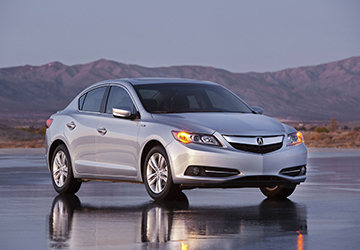One of the most important considerations when buying a car is whether you have a brand-new vehicle or one that is already road-worthy. Both solutions have advantages that must be carefully weighed before making a decision.
This article looks at the factors determining new versus used cars. We'll help you make an informed choice that suits your needs, tastes, and budget by reviewing the merits of each alternative.

What are the advantages of buying a new car?
Let's look at some of the benefits of buying a new car.
● The latest features and technologies
Learn about the latest features and trending technologies before buying a new car. Newer cars often feature advanced entertainment systems, driver assistance technologies, and improved fuel economy, making driving more fun and efficient.
● Guarantee and reliability
New cars often include a manufacturer's warranty for peace of mind and protection against problems or repairs. Additionally, new vehicles are less likely to experience unforeseen maintenance issues, resulting in greater reliability during the first few years of ownership.
● Customization options
When you shop for a new vehicle, you can choose the model and customization options that fit your needs. This level of customization ensures that your car is precisely tailored to your needs and preferences.
What are the benefits of buying a used car?
Let's briefly examine some of the advantages of buying a used car.
● Reduce costs
One of the big advantages of buying a used car over a new car is the cost savings. Used cars and cars are often cheaper and more affordable options for buyers on a tight budget.
● Depreciation
New cars depreciate significantly in value during the first few decades of ownership. By buying a used car, you can avoid premature depreciation and maximize the value of your investment.
● Variety and availability
The used car market has a wide variety of makes, models, and years of manufacture. This gives consumers more choices and the ability to purchase a specific car that suits their needs.
Factors to consider before buying a car
Here are some important things to consider before buying a new or used car.
● Budget
Your budget will determine whether a new or used car is the best option for you. Review your finances, considering the purchase price, financing options, insurance, and expected maintenance costs.
● Long-term intentions
Consider your long-term intentions for owning a car. If you plan to keep your vehicle for the long haul, a new car can guarantee reliability and warranty protection. That said, used cars offer more options if you want to upgrade in the next few years.
● Resale value
When buying a car, consider the resale value, as it can affect your long-term financial health. Several factors can affect resale value, including vehicle make and model, popularity, mileage, condition, and market demand. New cars depreciate faster in the first few years, but older cars depreciate more slowly. On the other hand, certain models with good order and reliability are better able to retain their value over time.
● Repair and maintenance
New vehicles require less maintenance and are protected by a warranty, reducing the risk of unexpected repair costs. Used cars may require more maintenance. So, when calculating your price, take into account possible repairs.

● Financing options
Financing decisions are critical when purchasing a new or used vehicle. Manufacturers or dealers often offer attractive financing options for new cars, such as low- or zero-interest financing. On the other hand, financing a used car may require a higher interest rate depending on criteria such as the vehicle's age, mileage, and creditworthiness. Exploring and comparing financing options is critical to choosing the most appropriate and informed solution for your scenario.
● Environmental considerations
Environmental awareness has become an important aspect of car buying decisions in recent years. Newer cars have often improved fuel economy, hybrid or electric options, and reduced emissions. These factors all reduce the carbon footprint and environmental impact. On the other hand, opting for a fuel-efficient used car or a used hybrid or electric vehicle can help meet sustainability goals by extending the life of existing vehicles.
● Insurance premium
Insurance costs depend on several criteria, including the vehicle's age, make and model, safety features, and driving history. Due to the higher value and repair costs of a new vehicle, higher insurance premiums may result. Insurance premiums for used cars (especially older models) can be lower. However, before making your final choice, you must check insurance prices for different cars, as costs vary widely depending on the vehicle and the insurance company.
Time to make a decision!
When deciding between the two vehicles, it is important to prioritize your choice and accommodation. Consider the benefits and considerations outlined in this article, do your extensive research, and seek help from reputable sources such as auto experts, dealerships, and internet sources.
Take the time to explore new and used vehicles to learn about their features, performance, and general suitability. Ultimately, your best bet is to find a car that suits your needs, is worth the money, and will provide you with years of enjoyment and reliability.
Diploma
The decision to buy a new or used car is personal, based on various factors, including budget, preferences, and long-term plans. While new cars come with the latest features and warranties, used vehicles offer savings and more options. Consider your specific needs, do thorough research, and take a test drive to make an informed decision. Remember, whether you choose a new or used vehicle, proper maintenance, and a thorough pre-sale inspection are essential to a satisfying ownership experience.





